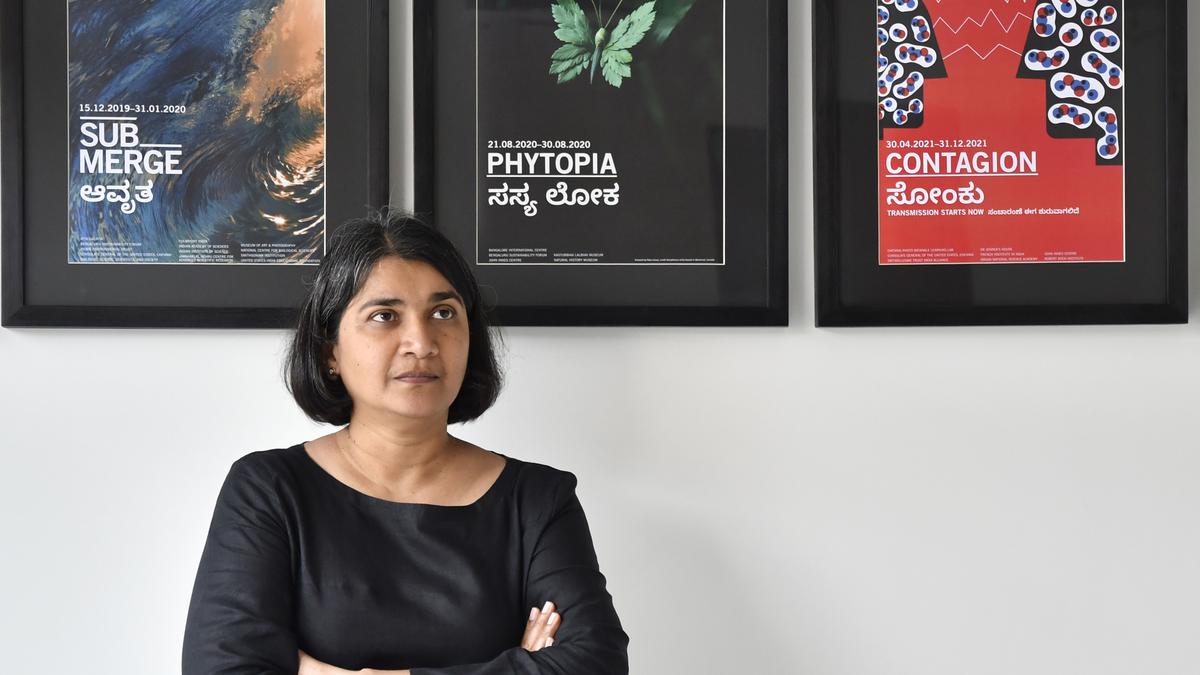
A marriage of history and science, and why we need it today Premium
The Hindu
Human, social and natural sciences will have to work together as they bear relevance to what and how we study natural and human-induced phenomena, says Jahnavi Phalkey, Founding Director, of Science Gallery Bengaluru and winner of the Infosys Prize 2023 for Humanities
On a weekday, as the morning peak traffic tapers off on the usually busy Ballari Road in North Bengaluru, Jahnavi Phalkey, the Founding Director of Science Gallery Bengaluru, sits in her office overlooking an African Tulip tree that offers a sense of calm despite feverish construction activity on the premises. The Gallery is gearing up for a formal inauguration soon.
Science Gallery Bengaluru is part of an international network of university owned exhibition galleries that bring together artists and scholars for public engagement with science, and the only one in Asia.
“Two things set us apart from our contemporaries: I have pioneered a Public Lab Complex with seven experimental spaces to deliver collaboration between scholars from the human, social, and natural sciences; and practitioners from art, design and engineering. The second is an incremental idea – one where exhibitions become an anchor for a full-blown Research Festival that brings together the same set of scholars and practitioners but with an explicit goal to make research legible in everyday life. With this, Science Gallery Bengaluru becomes a bridge between research and the public,” she says.
This sets the tone for the conversation, given that Jahnavi was recently declared the winner of the Infosys Prize 2023 for Humanities. According to the Infosys Science Foundation, Jahnavi was chosen for her “brilliant and granular insights into the individual, institutional, and material histories of scientific research in modern India.” Each prize carries a prize of a gold medal, a citation and a purse of USD 100,000 (or its equivalent in Rupees).
“Her book The Atomic State and many articles insightfully braid the global history of science, especially nuclear science, with the anthropology of the postcolonial state to illuminate rich and textured histories of the everyday lives of science in India,” the foundation said.
Though it has been around for a while, History of Science is a relatively young discipline, she says. “Regrettably, we do not have a degree programme in history of science at a university nor is the discipline professionalised sufficiently in India. We have, of course, several good scholars spread across the country who practice the discipline since the late 1980s, but we are yet to converge as a field,” she says.
Given the increasing number of scholars trained in the United States and Europe who are returning to India, this will happen in the next few years as the field expands to include not only history, philosophy, and sociology of science, but also newer fields like Science and Technology Studies (STS) and Science Policy Studies, she adds.





















 Run 3 Space | Play Space Running Game
Run 3 Space | Play Space Running Game Traffic Jam 3D | Online Racing Game
Traffic Jam 3D | Online Racing Game Duck Hunt | Play Old Classic Game
Duck Hunt | Play Old Classic Game











